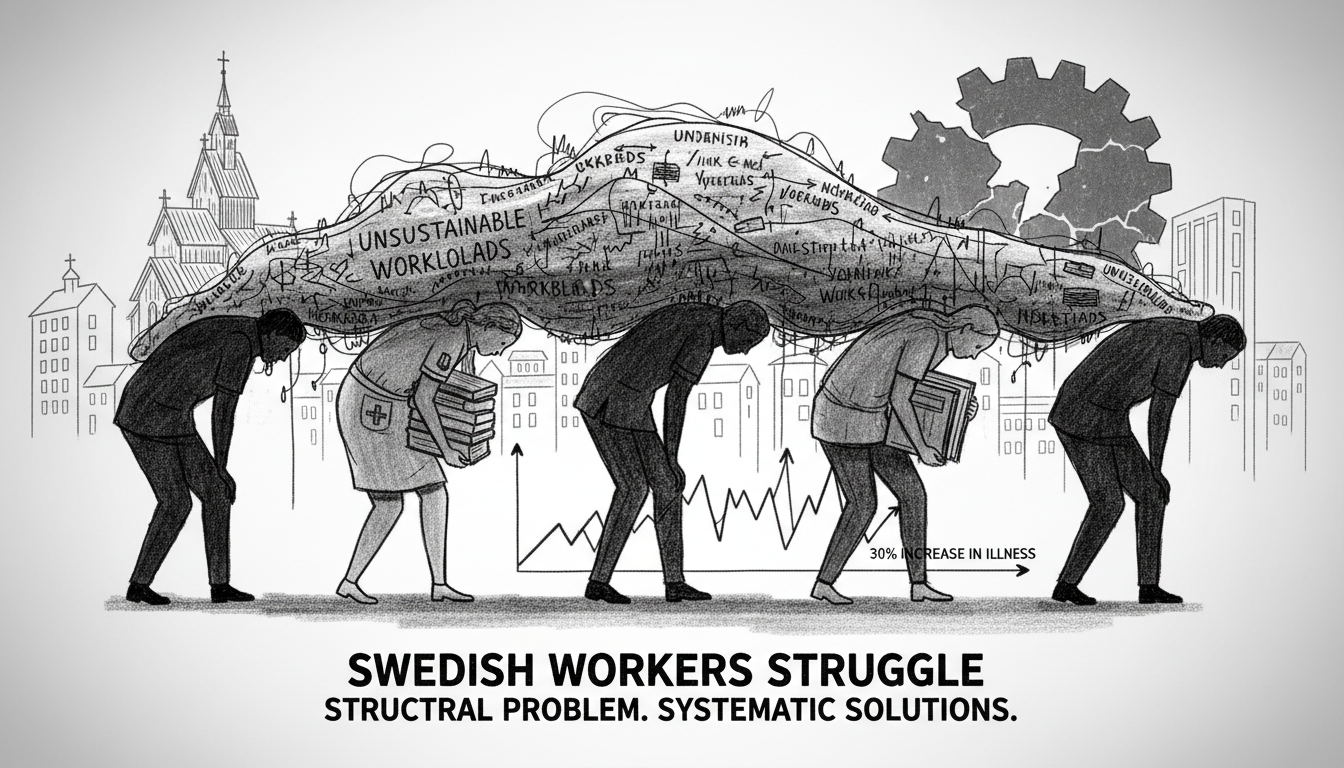Approximately 630,000 Swedish employees report consistently excessive workloads according to a new government study. The Swedish Work Environment Authority's survey reveals structural problems across multiple industries.
Healthcare, social services and education sectors show the most severe challenges. Nearly 37% of workers reporting unsustainable workloads come from these welfare professions.
"We're dealing with fundamental structural problems," said Lars Lööw, director general of the Work Environment Authority. He expressed particular concern about working conditions in essential public services.
Work-related illnesses from organizational and social causes jumped 30% in one year. The increase primarily stems from unhealthy workload pressures.
"It's terrible," Lööw stated about the findings. He noted that workplace environment often becomes secondary in welfare professions.
Lööw suggested employers sometimes exploit worker dedication. "Employers may misuse this engagement, which ultimately leads to burnout," he explained in the report.
The authority observes no major differences based on age, gender, education level or employment type. However, women aged 30-49 report excessive workloads slightly more frequently.
Specific professions show the highest rates of workload complaints. Assistant nurses, university teachers, elementary school teachers and preschool educators report the most severe challenges.
Breaking negative work environments requires systematic effort according to Lööw. "We need to identify structural problems through collaboration between authorities, employers and worker organizations," he said.
The survey gathered responses from approximately 17,600 employed individuals across Sweden. One in ten workers reported consistently excessive workloads regardless of profession.
This widespread issue suggests Sweden faces systemic workplace challenges that extend beyond individual companies or sectors. The concentration in essential public services raises questions about resource allocation in the welfare sector.
